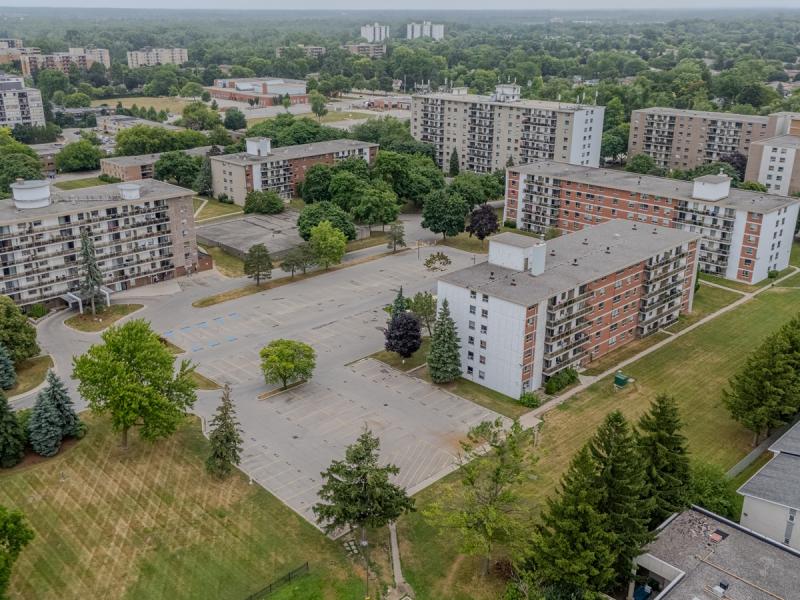
Derek Lobo of SVN Rock Advisors discussed issues facing rental apartment owners and managers during a recession. (Courtesy SVN Rock)
“Other than the drugstores, the grocery stores and Netflix, almost every industry is envious of apartment owners. Everybody needs someplace to live and I think things are going to be better for our industry than most.”
That’s how Derek Lobo, the CEO of SVN Rock Advisors Inc., Brokerage, introduced a 30-minute webinar dealing with purpose-built rental apartments in a recession. It’s a situation Canada could soon find itself dealing with, as the COVID-19 pandemic and low oil prices continue to batter the economy.
More than 600 watched the webinar live on March 20, while hundreds more have watched the archived version.
Lobo has more than 30 years of experience in the rental apartment business across North America. He has worked through 17 global and local recessions, so he offered valuable perspective to an increasingly nervous real estate community.
The apartment sector might be healthier than others, but there are bound to be challenges at least through the second and third quarters of 2020, Lobo said. Leasing activity will also be disrupted.
Issues affecting the apartment sector
Lobo also anticipates a slowdown in decision-making by buyers, lenders and sellers when it comes to deal-making.
Transactions which go forward will take longer to close due to more people working from home, inspection delays and longer timelines in working with municipalities.
Lobo said rental velocity of class-A apartments will likely slow. Seniors will stay put, but younger tenants could be forced to move if they lose their jobs.
Class-B apartments should remain relatively solid. Class-C apartments may see turnover as these residents live closer to the edge and disruptions to their income could cause major problems.
Situations that could cause apartment owners and developers the most trouble include:
* those where they’ve paid for a property with an extraordinarily low cap rate and are making major renovations to significantly raise rents;
* and those approaching new construction or in the lease-up phase.
“New construction is absolutely a solid business to be in and will remain solid,” said Lobo.
“But, if you have an apartment building under construction right now, there are going to be some logistical issues in terms of getting supplies, workers working on buildings, supply chain issues and so on.”
Owners of purpose-built student housing or apartments with a lot of students, as well as owners of seniors residences, face increased risks.
With university and college campuses closed indefinitely, many students have left their accommodations and returned home at a time when leasing for the 2020-’21 school year should be taking place.
A COVID-19 breakout in a seniors residence could be disastrous, at least in the short term.
Apartment buying opportunities
Lobo said there are buying opportunities in: under-capitalized apartments in mid-construction; leveraged land deals; REIT shares suffering from the rapid decline in stock markets; and from apartment owners who get in trouble in another industry and need liquidity.
“I don’t think there are going to be a lot of bargains out there for fully stabilized apartments, but there could be something for buildings under construction, or land deals that aren’t fully baked.”
The recent lowering of already-low interest rates offers good opportunities for refinancing existing buildings, or taking out financing on new construction, according to Lobo.
Recession rental risks
Lobo advised apartment owners to take a rent roll audit to determine the calibre of their tenants and their ongoing ability to pay rent. This can in turn be shown to lenders.
“You can prove to your lender that you’re in good shape,” he said. “And the better shape you’re in, the more money and negotiation flexibility a lender will have.”
Unemployment will continue to rise in the near term, however, and Lobo said landlords should work with impacted renters individually to minimize turnover.
For tenants facing job uncertainty, Lobo made two suggestions: asking them to sign a 12-month lease that they can get out of in 60 days if they lose their job; and offering existing renters a lower increase if they sign a 12-month lease with a similar 60-day exit clause if they lose their job.
For larger buildings, Lobo recommended creating a temporary lease renewal coordinator position from staff members who may have a lower workload due to the economic slowdown.
Lobo stressed the importance of not falling behind in leasing because it’s difficult to catch up once that happens.
“If you didn’t have a great leasing and marketing process, the market was forgiving you,” he said. “If the market changes, it’s not going to forgive you in the same way.”
The important thing at a time like this is to fill vacancies and not to hold out for top dollar or try to set market-leading rents, according to Lobo.
Lobo recommended virtual tours to aid in leasing efforts to cut down on personal contact as part of the social distancing movement to slow the spread of COVID-19.
Lobo sugggested apartment owners consider paying building staff a one-time bonus, or doing other nice things for them, to show appreciation. These staff members are working on the front lines and taking health risks because of it.
Future SVN Rock Advisors webinars
Lobo and SVN Rock Advisors will hold at least two more related webinars:
* March 25 at 10:30 a.m., Lobo will answer questions and deal with new standard operating practices for rent collection, leasing and lease renewal during the COVID-19 crisis.
* March 26 at 10:30 a.m., will focus on lenders to the purpose-built rental sector.







